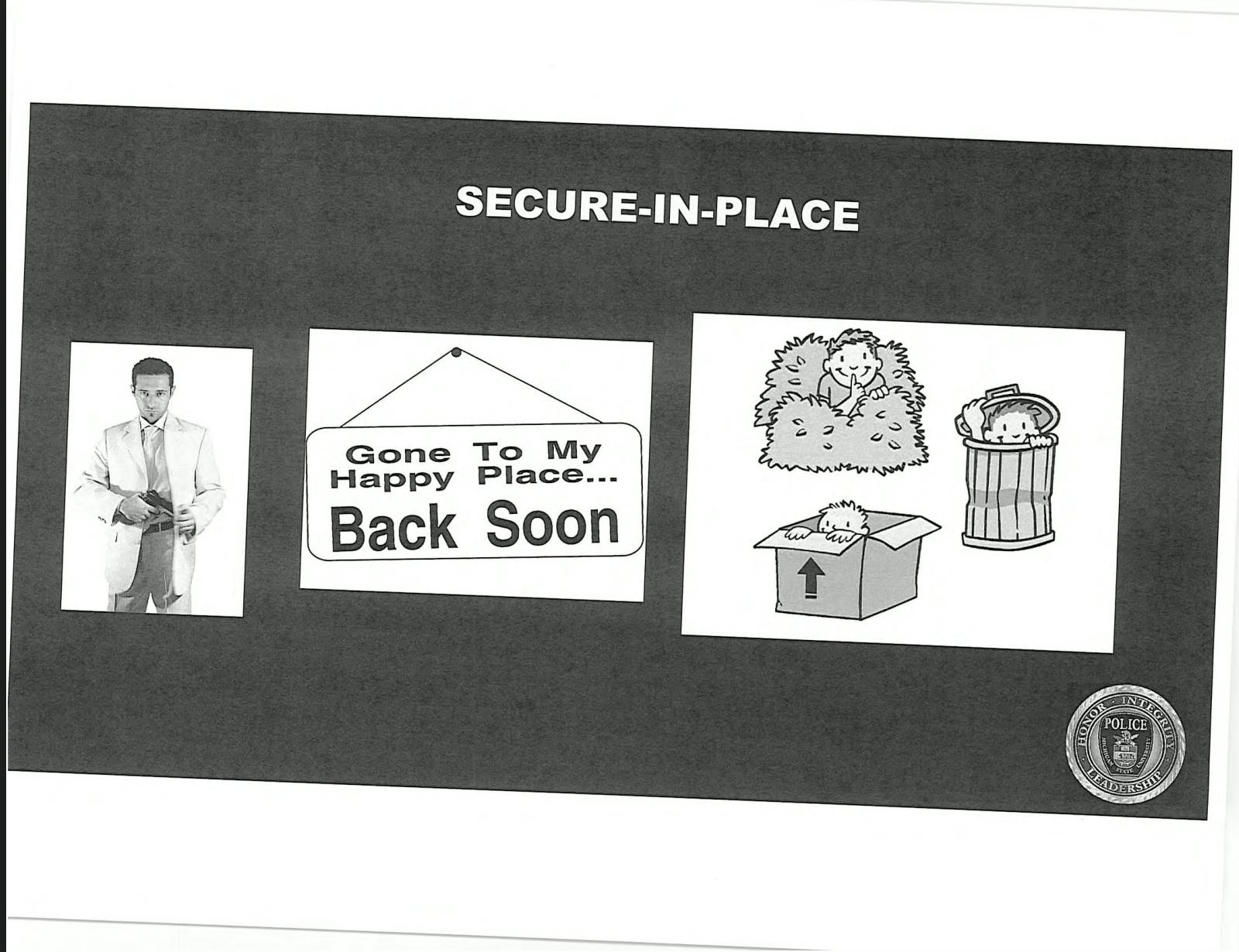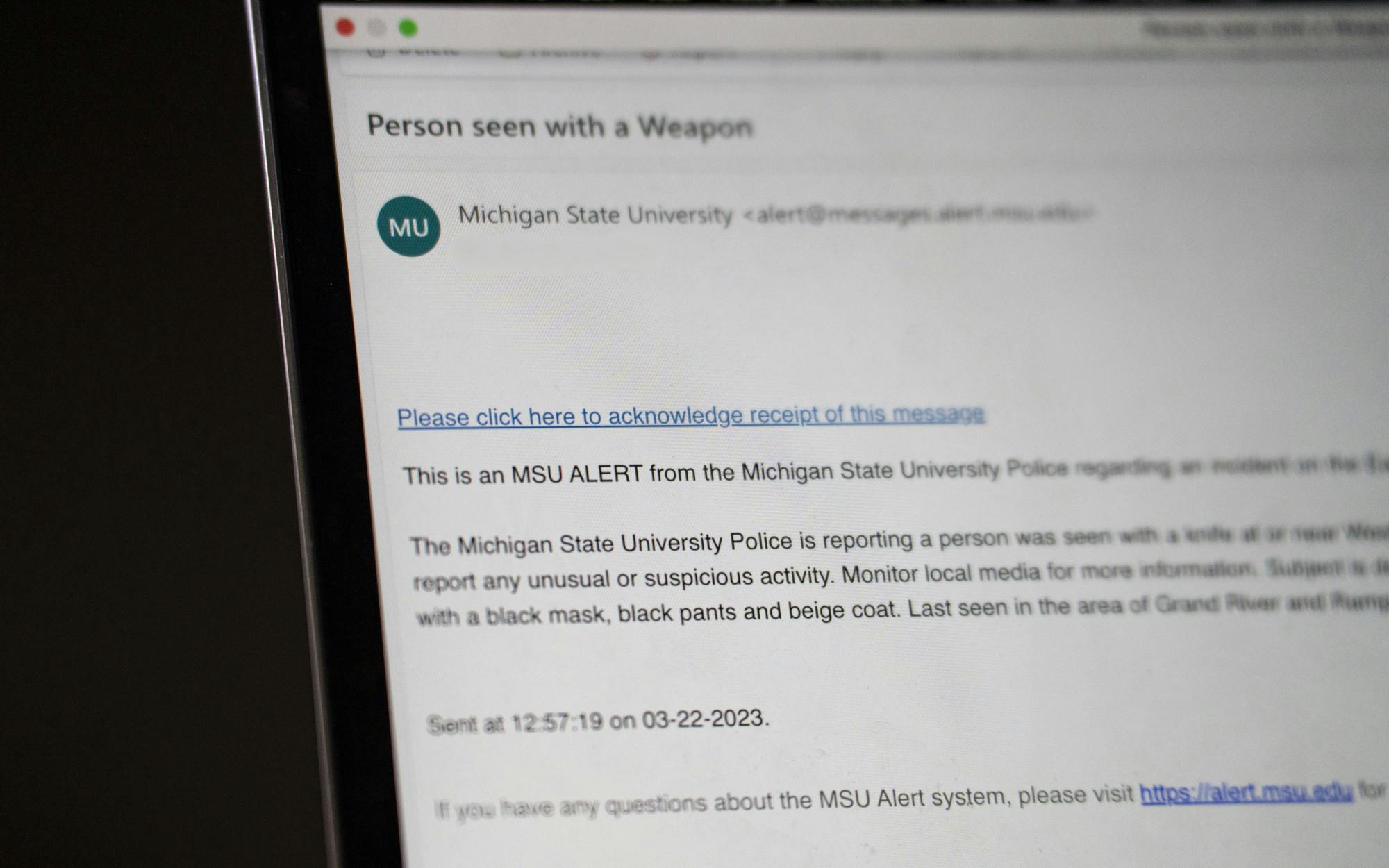Associate Professor Emily Conroy-Krontz was teaching in the STEM Building Wednesday when her students seemed to simultaneously lose focus. Her phone was connected to the projector, so she couldn’t see what they had just received: an email from campus police warning students of a “person seen with a knife at or near West Circle Drive.” The alert then told those “Nearby” to “secure-in-place.”
“One of my students had to interrupt class and bring up their computer to show me the alert, then we were all very concerned and didn't know what to do,” Conroy-Krontz said. “The phrasing was quite vague about where exactly they wanted people to be going into secure-in-place. Which parts of campus were being affected or not? We weren't really sure what to do.”
The confusion grew as her students' received texts from friends reportedly barricading their classrooms. 28 minutes later, they received the all-clear email and Conroy-Krontz ended class early. She said she saw “no way that learning was going to happen with everyone feeling so distracted and upset.”
She said the confusion and stress could have been reduced if the alert had more specific location information and if it clarified what the “secure-in-place” line was asking them to do.
The message in question regarded a man who brandished a knife in downtown East Lansing, outside of campus police’s jurisdiction but close enough to campus to warrant an alert.
The man has since been hospitalized and hasn’t been charged with a crime. East Lansing Police Captain Chad Pride told The State News on Wednesday that the investigation was ongoing.
MSUPD Chief Chris Rozman declined requests for an interview regarding the announcement; he did provide a written statement through a spokesperson.
The statement doesn’t explain the area meant by “near West Circle Drive.” Instead, it says that the geographic descriptions in the alert were taken directly from the witnesses and put into “pre-scripted templates” and “immediately shared with our community through MSU Alerts.”
The location information confused Journalism Freshman Satvik Shubham, who was walking near Akers, unsure if he was in a safe place.
“It's quite a broad term,” Shubham said. “It could be anywhere on the street; it could be near the area … I think it should have been more specific in regards to the location.”
Shubham was also confused by the “secure-in-place” terminology. He thought back to alerts sent during the mass shooting on MSU’s campus in February which used “shelter-in-place,” and didn’t know if the phrases meant different things.
The MSUPD statement said that the terms are generally used interchangeably, and both mean people should “find a secure and safe location indoors" and stay there until you are given an ‘all clear’ to leave.”
But instructions given to staff for an active violence drill in October 2021 describe the term differently. The document obtained by The State News says students and instructors should:
1) Remain calm
2) Find an interior room and lock the door
3) Turn off the lights
4) Silence your phone
5) Draw blinds and move away from windows.
It also provides an illustrated graphic showing students hiding in bushes, boxes and trash cans.

The campus-wide email was sent to “MSU.EDU” address at 12:59 p.m. on Wednesday. Twitter and Facebook notifications were sent 17 minutes later, and SMS Texts alerts reportedly were sent to different groups at different times during that window.
Broad College freshman Cross Jackson didn’t know there was an alert at all. He says he checks his university email regularly but was in class the entire duration of the secure-in-place, unaware it was happening.
“It’s concerning,” Jackson said. “Because, it could have been something really drastic and I wouldn’t have known until it was too late.”
Shubham, who did see the alert, worried that not all his peers would.
“There's plenty of students that I know that don't check their emails, or don't see email as an urgent platform to contact them,” he said.
Further confusion was caused by loud-speaker announcements. Moments before the email, Conroy-Kruntz’s class heard a “garbled” announcement over the intercom where they could “make out maybe every third word.” But that announcement wasn’t about the secure-in-place, it was about the 1 p.m. tornado-siren test which began moments later. By coincidence, that siren would blare through much of the confusion Wednesday.
Loud-speaker announcements were not used during the secure-in-place. According to the October 2021 drill instruction, MSUPD has eight speaker-towers throughout campus that can deliver an “audio warning message” during an event of active violence.
MSUPD’s statement defended the use of email and said alerts across multiple channels are “not mandatory or required in any way.” The Clery Act, which federally mandated communication and transparency from university police departments, only requires that university police departments provide “an emergency notification,” making the initial email sufficient.







